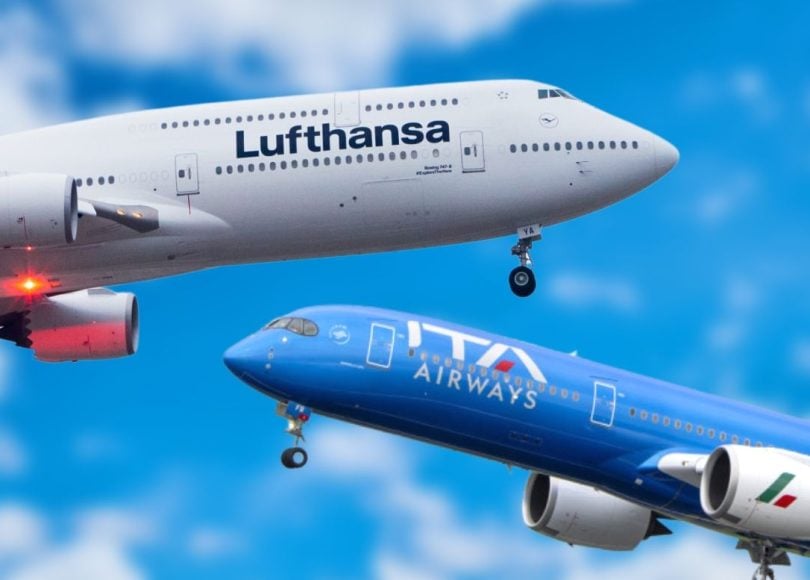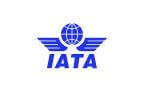In front of analysts and investors, the company reaffirmed its goal of adapting the Group’s organizational and operational structure to reorganize cooperation and responsibilities within the Group. The aim is to achieve closer and more networked cooperation between group functions and airlines, thereby leveraging synergies and increasing efficiency. To create sustainable value for customers, shareholders, and employees, the company is focusing on four strategic pillars under the umbrella of the group:
Lufthansa Network Airlines
Network Airlines Lufthansa, SWISS, Austrian Airlines, Brussels Airlines, and ITA Airways: The airlines will move even closer together in the future as a result of adjustments to the organizational structure and processes and even deeper integration. This will clarify responsibilities, promote collaboration, and speed up decision-making processes. Group-wide steering of all commercial offer management (e.g., short- and medium-haul network management for all hub airlines) will increase productivity and efficiency. The airlines are also benefiting from continued strong global demand for air travel.
This demand is being met by a tight offer due to ongoing delays in the supply chains of aircraft and engine manufacturers, which is having a positive effect on average revenues and load factors. The Lufthansa Group plays an active role in consolidation in Europe and is impressively demonstrating this through the rapid integration of ITA Airways. Existing transformation programs, such as “Turnaround” at the core brand Lufthansa Airlines, are being consistently implemented to significantly strengthen earnings performance. The largest fleet modernization in the company’s history is a key strategic element for future viability and increased profitability, and a clear commitment to innovation, sustainability, and premium quality. The Lufthansa Group expects to add more than 230 new aircraft by 2030, including 100 long-haul aircraft.
Eurowings
Point-to-point with Eurowings: Following its successful restructuring and repositioning as a value airline for Europe, accompanied by significant increases in earnings, the Eurowings success story is set to continue. In particular, Eurowings is consistently expanding its leisure travel offerings. The tour operator Eurowings Holidays, which was spun off in spring 2025, is bringing innovation and dynamism to the tourism business – with the clear goal of growing rapidly and becoming one of the top ten German tour operators. Further momentum is provided by the most significant fleet renewal in Eurowings’ history, which will lead to significantly lower operating costs. With the gradual integration of new short- and medium-haul jets (40 Boeing 737-8 MAX), Eurowings will operate one of the youngest fleets in European aviation.
Lufthansa Technic
MRO with Lufthansa Technik: The global market leader in aircraft technical support is on track with the implementation of its “Ambition 2030” program for the future. Comprehensive investments in the growth of its core business, the expansion of locations and international presence, for example, in Canada and Portugal, as well as the extension of digital business models, are expected to significantly increase revenue and profit by 2030 and further secure the company’s future viability. In addition to its business with commercial airlines, Lufthansa Technik is advancing the development of its new “Defense” division to establish itself in this growing area.
Lufthansa Logistic
Logistics with Lufthansa Cargo. Lufthansa Cargo is benefiting particularly from growing demand in the e-commerce business and opportunities arising from the volatility of global markets. The expansion of cargo capacities at Europe’s largest cargo airline, significant investments of 600 million euros in the central cargo hub at Frankfurt Airport, and the consistent expansion of automation and digitalization are increasing Lufthansa Cargo’s profitability to become one of the top three global players in the air cargo sector.
Consistent transformation at Lufthansa Group
2025 and the years to come will be marked by significant investments and comprehensive adjustments for the Lufthansa Group. In particular, fleet renewal and future programs such as “Turnaround” at Lufthansa Airlines are part of a comprehensive change aimed at strengthening the Lufthansa Group in the long term and increasing productivity, efficiency, and profitability. These new measures are already delivering tangible positive effects.
The Lufthansa Group will also drive forward its digital transformation in the coming years. By consolidating all IT functions in one Executive Board department and combining the digital units and competencies from the ‘Digital Hangar’ with the ‘Innovation & Tech Factory’ in a new central role, the aim is to expand digital expertise significantly.
Another value driver is the Lufthansa Group’s customer loyalty program “Miles & More”. It is planned to increase the number of active members by 50 percent by 2030. Following the announcement of Deutsche Bank as a new partner for the Miles & More credit card and the strategic partnership with Marriott Bonvoy, the areas of Loyalty, Payment, Partnerships, and Retail Media are to be consistently expanded as growth areas for the Group in the coming years.
New medium-term financial targets
As a result, the Lufthansa Group expects significantly increased profitability by the end of the decade. The company is therefore setting itself new ambitious medium-term financial targets. These are aimed at exceeding the Lufthansa Group’s historical results.
Ultimately, all of the initiatives mentioned pursue a clear common goal: to position the company for the future and achieve sustainably attractive returns for shareholders. To this end, the company aims to achieve the following financial targets in the period 2028-2030:
- · Adjusted EBIT margin of 8 to 10 percent
- · Adjusted ROCE (Return on Capital Employed) before taxes of 15 to 20 percent
- · Adjusted Free Cash Flow of over 2.5 billion euros per year
Financial strength will continue to be the basis for achieving the financial targets. As is currently the case, the Lufthansa Group will continue to strive for an investment-grade rating from leading rating agencies in the future. To hedge against potential crises, the Lufthansa Group will continue to maintain a conservative minimum liquidity of 8 to 10 billion euros.
In addition, the company will adhere to its existing dividend policy, which provides for a distribution of 20% to 40% of consolidated net income to shareholders.
Integrated cooperation within the Lufthansa Group will result in significant changes to the processes and structures governing cooperation between Group companies in the future. On this basis, the Lufthansa Group is reviewing which activities will no longer be necessary in the future, such as those that involve duplication of work. In particular, the profound changes brought about by digitalization and the increased use of artificial intelligence will lead to greater efficiency in many areas and processes.
Due to these developments and structural adjustments, the Lufthansa Group plans to reduce its workforce by approximately 4,000 jobs worldwide by 2030, with the majority of these cuts expected to occur in Germany. This will be done in consultation with the social partners. The focus will be on administrative rather than operational roles.







